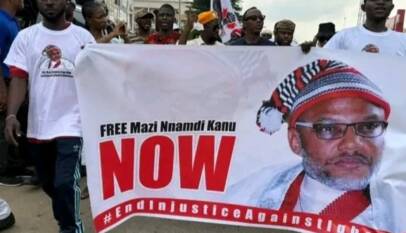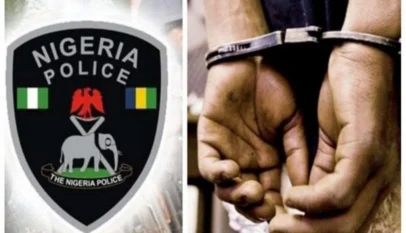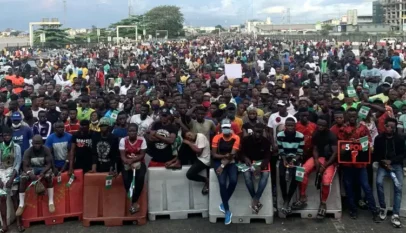By Deborah Nnamdi
The Nigeria Police Force has defended the use of tear gas by its operatives to disperse protesters in Abuja who were demanding the release of the detained leader of the Indigenous People of Biafra (IPOB), Mazi Nnamdi Kanu.
The demonstration, which took place on Monday across parts of the Federal Capital Territory, including the Three Arms Zone, Maitama, and Jabi, saw protesters calling for Kanu’s release from the custody of the Department of State Services (DSS).
Eyewitnesses said the protesters attempted to march toward the Three Arms Zone — home to the Presidential Villa, National Assembly, and Court of Appeal — prompting police officers to fire tear gas to prevent them from advancing.
However, the police action sparked criticism from Amnesty International Nigeria, which condemned the use of force as “an attempt to suppress peaceful protests.”
In a post on its official X handle, Amnesty International said it had received “disturbing reports” of efforts to crack down on peaceful demonstrators.
The rights group emphasized that citizens must be allowed to exercise their right to peaceful assembly, describing any act that undermines this freedom as illegal and intolerant of dissent.
Amnesty International urged Nigerian authorities to ensure that security agencies respect and facilitate citizens’ right to protest, in line with the Constitution and international human rights treaties, including the African Charter on Human and Peoples’ Rights.
Responding to the criticism, the Force Public Relations Officer, CSP Benjamin Hundeyin, defended the police’s action, insisting it was lawful and necessary.
According to him, the protesters violated an existing court order restricting demonstrations around sensitive areas such as the Aso Villa, National Assembly, Force Headquarters, Court of Appeal, Eagle Square, and Shehu Shagari Way.
“Police tear-gassed protesters attempting to approach Aso Villa in clear contravention of a court order,” Hundeyin wrote on his X handle. “We are the country’s foremost law enforcement agency. We carried out our mandate. We did not block the road but cleared it after it was obstructed by protesters to allow free movement for other Nigerians.”
Mazi Nnamdi Kanu has been in DSS custody since June 2021 and is currently facing trial on terrorism-related charges before the Federal High Court in Abuja.






























